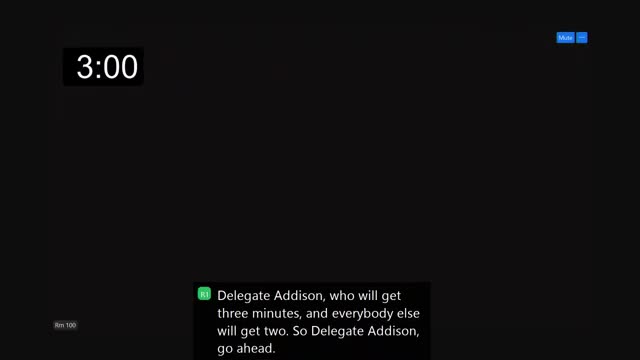Panel hears bill to curb citizen-filed arrest warrants, expand screening and penalties for false complaints
Get AI-powered insights, summaries, and transcripts
Subscribe
Summary
House Bill 21 would narrow the power of district court commissioners to issue arrest warrants based solely on citizen complaints, require earlier screening by law enforcement or prosecutors for serious allegations and raise penalties for false statements, lawmakers heard Thursday.
House Bill 21 would restrict a district court commissioner's ability to issue arrest warrants on the basis of citizen-filed complaints alone, require referral or rapid screening by law enforcement or a prosecutor for serious charges, and increase penalties for knowingly making false statements in some circumstances.
Supporters — including Delegate Jackie Addison, Baltimore City State—s Attorney Ivan Bates, Prince George—s County State—s Attorney Maisha Bray, and several victims and victim advocates — told the committee they had seen people harmed by arrest warrants issued after unvetted citizen complaints. Baltimore City State—s Attorney Ivan Bates described cases where individuals were detained and suffered job and reputational loss before prosecutors could evaluate evidence; he urged that prosecutors be involved before a warrant issues in many cases.
Proponents said the bill preserves an option for commissioners to issue warrants when they find probable cause that the defendant poses a danger to a person or the community. Scott Schellenberg, Baltimore County State—s Attorney, and others said the bill would not block citizens from reporting crimes — it would more often require a summons rather than an immediate warrant unless a public-safety risk is shown.
Opponents, led by advocates for victims and public defenders, raised two main concerns: that delaying or blocking warrants could leave genuinely endangered victims without timely protection, and that raising the criminal penalty for false statements could chill victims who later recant or cannot immediately furnish evidence. The Maryland Network Against Domestic Violence and other victim-service providers urged safeguards so victims can quickly get safety resources and protective orders.
Several prosecutors recommended process changes rather than an outright ban. The state's attorneys presented amendments that would create (1) an expedited referral pathway for felony-level citizen complaints to law enforcement and the State—s Attorney—s Office, (2) a short prescreening or "precharge" status to keep preliminary complaint information out of public case-search listings while offices review it, and (3) shielding of those preliminary records from public view until a prosecutorial charging decision.
Committee members asked about logistics: whether every jurisdiction can provide a prosecutor on call, how long screenings would take, how the change would interact with ex parte civil protective orders, and whether perjury and false-statement statutes overlap. Prosecutors said many offices already operate citizen-complaint bureaus and could screen complaints in 24—36—0 hours in most cases; they urged immediate referral for felony allegations so investigators can preserve evidence.
The committee heard many personal accounts from people who said they lost jobs, housing, or custody after warrants issued on unverified citizen complaints. Supporters and a number of state's attorneys argued the bill would reduce those kinds of wrongful harms while still allowing prompt police and prosecutorial action when the facts support it.
The sponsor said she would accept amendments to create the referral and prescreen procedures. The committee did not take a vote during the hearing.
